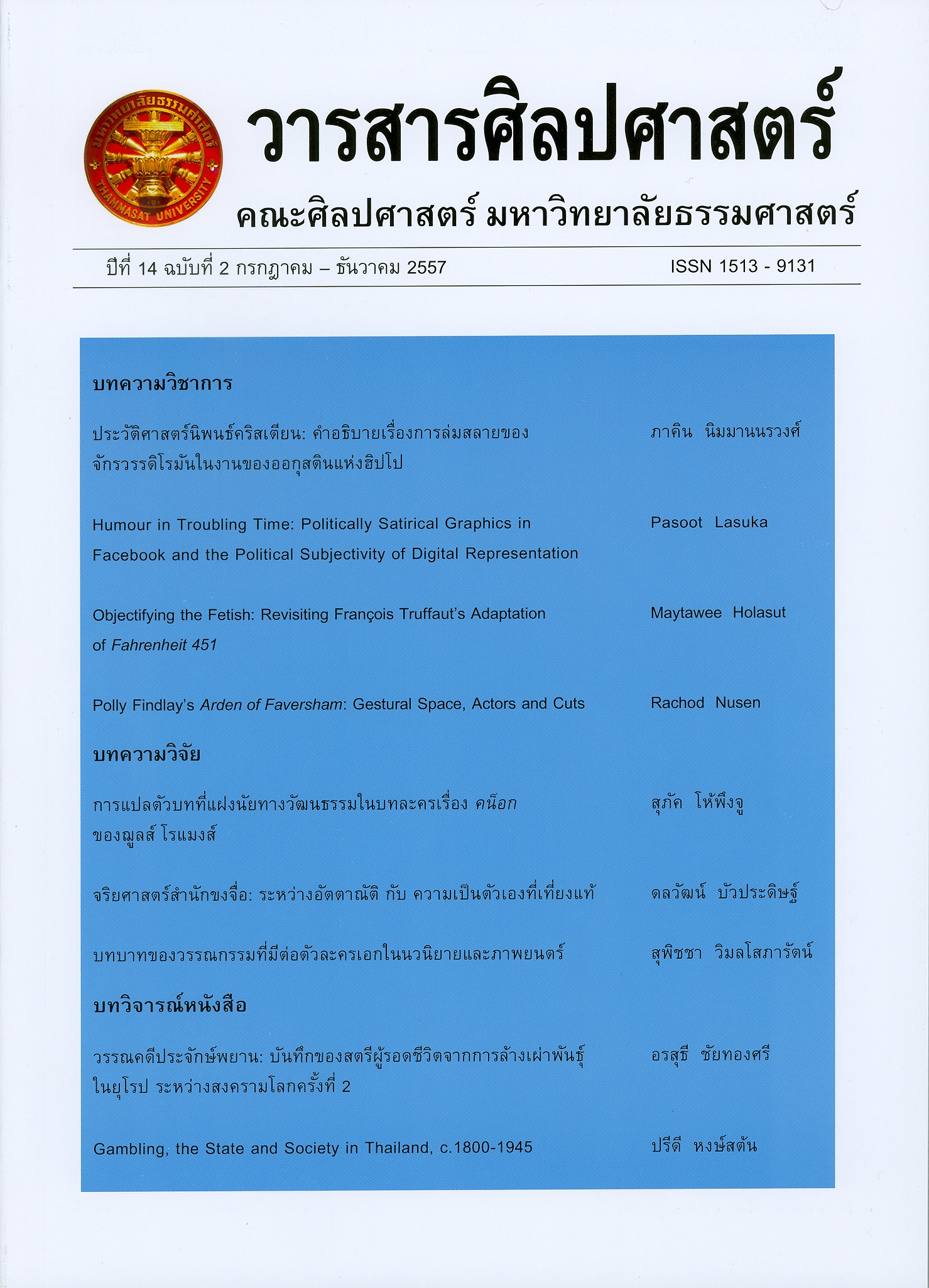Objectifying the Fetish: Revisiting François Truffaut’s Adaptation of Fahrenheit 451
Main Article Content
Abstract
This article explores the dynamic relationship of François Truffaut’s adaptation of Ray Bradbury’s dystopian novel, Fahrenheit 451. Bradbury’s novel is known for its romanticization of books as a bastion of humanistic ideals, whereas television is depicted as a dehumanizing medium. However, Truffaut’s adaption revises this dichotomy through cinematic language that foregrounds books and television as fetish objects. Thus, Truffaut’s alteration to the original source material prompts us to consider a possible reexamination of the aforementioned dichotomy.
บทความนี้มุ่งวิเคราะห์ความสัมพันธ์ของการดัดแปลงบทภาพยนตร์เรื่องฟาเรนไฮต์ 451 ผลงานกำกับโดยฟรองซัวร์ ทรูว์โฟ จากนวนิยายดิสโทเปียนชื่อเดียวกันของเรย์ แบรดบิวรี่ นวนิยายเรื่องนี้เป็นที่รู้จักอย่างแพร่หลายด้วยเนื้อหาที่เชิดชูหนังสือในฐานะสื่ออันเป็นตัวแทนของคุณค่าอันสูงส่งของมนุษย์ และวาดภาพโทรทัศน์เป็นสื่อที่ลดทอนคุณค่าดังกล่าว อย่างไรก็ตาม ภาพยนตร์ของทรูว์โฟได้ทบทวนการสร้างคุณค่าของ นวนิยายผ่านภาษาภาพยนตร์ที่ชี้ให้เห็นถึงความเป็นวัตถุบูชา (fetish object) ของสื่อประเภทต่าง ๆ ทั้งหนังสือ โทรทัศน์ และตัวภาพยนตร์เอง อาจกล่าวได้ว่าการดัดแปลงหนังสือเป็นภาพยนตร์ของทรูว์โฟเปรียบเสมือนการเปิดพื้นที่เพื่อทบทวนคุณค่าที่แฝง อยู่ในนวนิยายต้นฉบับอย่างเป็นพลวัต


